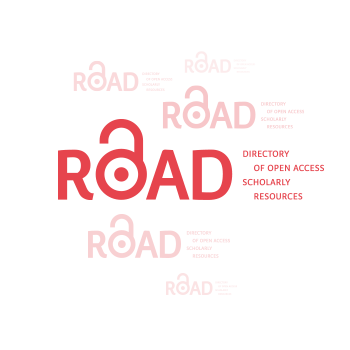Assessing the Pros and Cons of AI-Supported Learning in Education (Position Paper)
DOI:
https://doi.org/10.59994/pau.2025.SI.231Keywords:
Personalized Learning, Ethical Challenges, Enhancing Educational Processes, Data AnalysisAbstract
This study aims to analyze the applications of artificial intelligence (AI) in education, starting from the challenges related to improving teaching and learning processes alongside the significant transformative potential offered by this field. The study adopted a literature review methodology, with data collected from peer-reviewed academic journals, books, and research reports, which were then systematically classified into key themes, including the role of AI in enhancing learning experiences, educational management, and ethical considerations. The findings indicate that there are two prominent types of AI: “classical AI,” which focuses on data processing and decision-making, and “generative AI,” which creates original content. This distinction is essential for understanding how these technologies can be effectively employed in educational contexts. The study concludes that AI provides tangible benefits, such as improving the efficiency of educational systems, enhancing data management, and offering personalized learning. However, it also raises major challenges related to privacy, security, fairness, and the risk of job displacement. Therefore, the study emphasizes the need for a balanced approach that integrates technological advancement with ethical and practical considerations to ensure the effective and sustainable use of AI in education. The originality of this study lies in presenting a comprehensive and systematic analysis that balances the technical potential of AI with its ethical and social challenges in the educational sector. Rather than merely reviewing benefits and drawbacks, it offers a critical and balanced perspective grounded in recent literature, thereby opening new avenues for scholarly debate on how to integrate AI effectively into education while preserving values of equity, fairness, and the quality of the learning process.
Downloads
References
Aydogdu, S., & Güyer, T. (2019). The Effect of Digital Concept Maps in Online Learning Environments on Students' Success and Disorientation. Malaysian Online Journal of Educational Technology, 7(1), 76-93.
Berland, M., Baker, R. S., & Blikstein, P. (2014). Educational data mining and learning analytics: Applications to constructionist research. Technology, Knowledge and Learning, 19(1), 205-220.
Brown, T., Mann, B., Ryder, N., Subbiah, M., Kaplan, J. D., Dhariwal, P., ... & Amodei, D. (2020). Language models are few-shot learners. Advances in neural information processing systems, 33, 1877-1901.
Chen, L., Chen, P., & Lin, Z. (2020). Artificial intelligence in education: A review. IEEE access, 8, 75264-75278.
Chiu, T. K., Ismailov, M., Zhou, X., Xia, Q., Au, C. K., & Chai, C. S. (2023). Using self-determination theory to explain how community-based learning fosters student interest and identity in integrated STEM education. International Journal of Science and Mathematics Education, 21(Suppl 1), 109-130.
Chiu, T. K., Moorhouse, B. L., Chai, C. S., & Ismailov, M. (2024). Teacher support and student motivation to learn with Artificial Intelligence (AI) based chatbot. Interactive Learning Environments, 32(7), 3240-3256.
Davis, E., & Marcus, G. (2015). Commonsense reasoning and commonsense knowledge in artificial intelligence. Communications of the ACM, 58(9), 92-103.
Falloon, G. (2020). From digital literacy to digital competence: the teacher digital competency (TDC) framework. Educational technology research and development, 68(5), 2449-2472.
Gardner, H. (2021). Disciplined mind: What all students should understand. Simon & Schuster.
Goodfellow, I. J., Pouget-Abadie, J., Mirza, M., Xu, B., Warde-Farley, D., Ozair, S., ... & Bengio, Y. (2014). Generative adversarial nets. Advances in neural information processing systems, 27.
Hu, L. (2022, July 17). Generative AI and Future: GAN, GPT-3, DALL·E 2, and what’s next. Towards AI. https://pub.towardsai.net
Hutson, J. (2025). Cultivating Identity, Workforce Readiness, and Heutagogical Lifelong Learning: The Case for Student-Trained AI Agents in Postsecondary Education. FAR Journal of Education and Sociology, 2(3).
Jarrah, A. M., Wardat, Y., & Fidalgo, P. (2023). Using ChatGPT in academic writing is (not) a form of plagiarism: What does the literature say. Online Journal of Communication and Media Technologies, 13(4), e202346.
Kim, S. W., & Lee, Y. (2018). Pre-Service Teachers' Attitudes toward Robots: Analysis of Difference According to Variables. The Journal of Korean Association of Computer Education, 21(4), 21-27.
Kwet, M., & Prinsloo, P. (2020). The ‘smart’classroom: a new frontier in the age of the smart university. Teaching in Higher Education, 25(4), 510-526.
Lee, E. (2020). A comparative analysis of contents related to artificial intelligence in national and international K-12 curriculum. The Journal of Korean association of computer education, 23(1), 37-44.
Lim, W. M., Gunasekara, A., Pallant, J. L., Pallant, J. I., & Pechenkina, E. (2023). Generative AI and the future of education: Ragnarök or reformation? A paradoxical perspective from management educators. The international journal of management education, 21(2), 100790.
Lin, H., & Chen, Q. (2024). Artificial intelligence (AI)-integrated educational applications and college students’ creativity and academic emotions: students and teachers’ perceptions and attitudes. BMC psychology, 12(1), 487.
Luckin, R., & Holmes, W. (2016). Intelligence unleashed: An argument for AI in education.
Means, B., Bakia, M., & Murphy, R. (2014). Learning online: What research tells us about whether, when and how. Routledge.
Merino-Campos, C. (2025). The impact of artificial intelligence on personalized learning in higher education: A systematic review. Trends in Higher Education, 4(2), 17.
Na, S., Heo, S., Han, S., Shin, Y., & Roh, Y. (2022). Acceptance model of artificial intelligence (AI)-based technologies in construction firms: Applying the Technology Acceptance Model (TAM) in combination with the Technology–Organisation–Environment (TOE) framework. Buildings, 12(2), 90.
Parviz, M. (2024). " The Double-Edged Sword:" AI Integration in English Language Education from the Perspectives of Iranian EFL Instructors. Complutense Journal of English Studies, 32.
Pavlik, J. V. (2023). Collaborating with ChatGPT: Considering the implications of generative artificial intelligence for journalism and media education. Journalism & mass communication educator, 78(1), 84-93.
Reddy, V. M., Vaishnavi, T., & Kumar, K. P. (2023, July). Speech-to-text and text-to-speech recognition using deep learning. In 2023 2nd international conference on edge computing and applications (ICECAA) (pp. 657-666). IEEE.
Roll, I., & Wylie, R. (2016). Evolution and revolution in artificial intelligence in education. International journal of artificial intelligence in education, 26(2), 582-599.
Russell, S. J., & Norvig, P. (2016). Artificial Intelligence: A Modern Approach. Pearson. Available at: https://aima.cs.berkeley.edu/
Salem, M. O. A. (2025). The Future of eLearning: An Analytical Study of Emerging Innovations Transforming Teaching and Learning. Journal of Scientific and Human Dimensions, 39-49.
Selwyn, N. (2019). Should robots replace teachers?: AI and the future of education. John Wiley & Sons.
Shweiki, S., Abd-Rabo, A., Badah, A., Tarteer, S., Mahmoud, S., Odeh, A., & Affouneh, S. (2021). A code of ethics proposal for Palestinians’ educators: attitudes and themes. International Journal of Ethics Education, 6(2), 339-355.
Silva, J., & Silveira, I. (2020). A systematic review on open educational games for programming learning and teaching. International Journal of Emerging Technologies in Learning (iJET), 15(9), 156-172.
Snyder, H. (2019). Literature review as a research methodology: An overview and guidelines. Journal of business research, 104, 333-339.
Steiner, E. D. (2015). Continued progress: Promising evidence on personalized learning. Rand Corporation.
Stone, P., Brooks, R., Brynjolfsson, E., Calo, R., Etzioni, O., Hager, G., ... & Teller, A. (2022). Artificial intelligence and life in 2030: the one hundred year study on artificial intelligence. arXiv preprint arXiv:2211.06318.
Tranfield, D., Denyer, D., & Smart, P. (2003). Towards a methodology for developing evidence‐informed management knowledge by means of systematic review. British journal of management, 14(3), 207-222.
Turing, A. M. (1950). Computing machinery and intelligence mind, 59, 236, 433–460. Cerca con Google.
Williamson, B. (2017). Big data in education: The digital future of learning, policy and practice.
Zohuri, B., & Mossavar-Rahmani, F. (2024). Revolutionizing education: The dynamic synergy of personalized learning and artificial intelligence. International Journal of Advanced Engineering and Management Research, 9 (1), 143-153.
Downloads
Published
How to Cite
Issue
Section
License
Copyright (c) 2025 Journal of Palestine Ahliya University for Research and Studies

This work is licensed under a Creative Commons Attribution 4.0 International License.
مجلة جامعة فلسطين الاهلية للبحوث والدراسات تعتمد رخصة نَسب المُصنَّف 4.0 دولي (CC BY 4.0)











